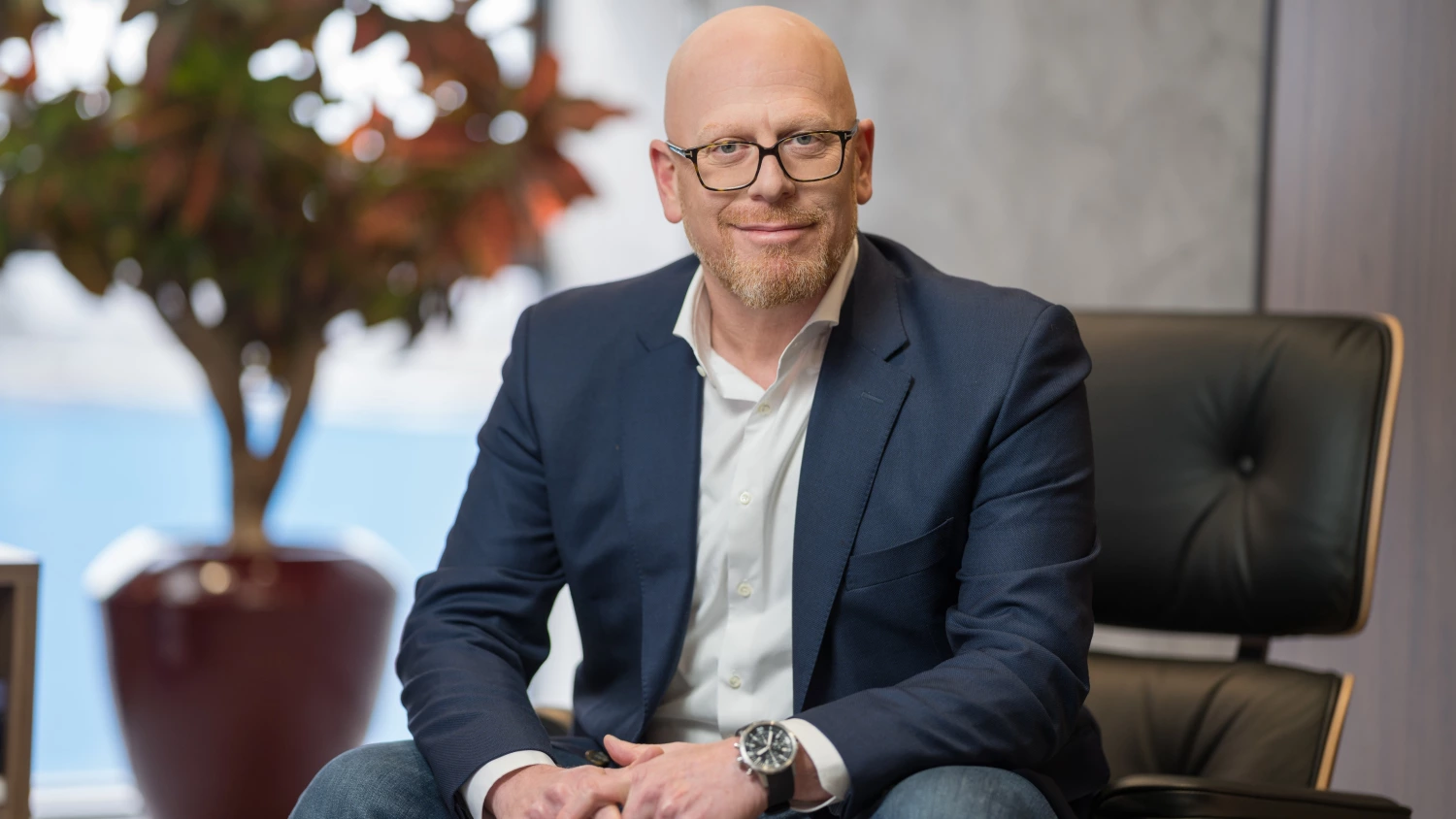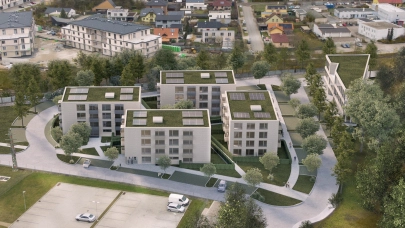
Doron Klein, CEO of AFI Europe Romania and Czech Republic, spoke with Property Forum about the increasing trend of employees returning to the office and the company’s first build to rent project in Romania.
This interview was first published in Property Forum’s annual listing of "The 50 most influential people on Romania’s real estate market”.
How did AFI Europe’s commercial portfolio in Romania perform last year on occupancy rates and new developments?
In 2023, AFI Europe Romania performed well. Our occupancy rates in most of our projects are close to 100%, whether we are talking about offices or shopping centres. With remote work becoming a decreasing trend and employees returning to their office spaces, we are focusing on new and innovative ways to integrate our tenants’ always-evolving needs. When it comes to retail, 2023 was a year of firsts, as we welcomed in our portfolio big international brands such as Primark, Half Price, Leroy Merlin, Decathlon, Fressnapf or Boss and many others.
Moreover, last year, we delivered our first retail park in Romania. AFI Arad, a 30,000 sqm project, welcomed a unique variety of brands, some of which were brought to Arad for the first time, such as Carrefour, Leroy Merlin, McDonald’s, Decathlon.
What is AFI Europe Romania’s current development pipeline?
AFI Europe Romania was always a pioneer in real estate development. We are continuing this trend in 2024 with our first Built to Rent project in Romania – AFI Home North. It will consist of three residential buildings featuring a total of 380 apartments right in the centre of Bucharest’s business life, Dimitrie Pompeiu.
The project follows the success of over 4,000 units developed in Poland and the Czech Republic in the last years and will cater to professionals who want to develop their lives in the middle of a handpicked community, close to their offices, transforming the hours spent in traffic into free time.
In 2024 we will also deliver AFI Loft, our 16,000 sqm boutique A-Class office project that will tower above AFI Cotroceni mall. Built at the highest technical level, the new office space will benefit from a spectacular interior architectural design, atriums, lounge areas for all the tenants and of course a direct “dry fit” access to the mall with its endless amenities.
The first floor of AFI Loft will include an exterior terrace with a view inside the mall, while the main atrium will connect the first and second floors in a seamless and spacious way.
What are the particularities of your ESG strategy in the local portfolio and how aware are your tenants of the sustainability topic?
Since the beginning of our activity in Romania we intuitively developed projects with concern and respect for the environment and for our tenants so we can provide them with facilities like natural light, showers, bicycle racks, LED lighting, relaxing areas, recycling facilities and many more.
Companies are now aware of the importance of ESG standards and are looking for sustainable offices and retail spaces. We are always looking to provide the highest sustainability standards and our plans for the future are only adding it to our ambitions on that front.
All our projects in Romania are LEED or BREEAM certified as part of the group strategy to develop sustainable buildings with care for its tenants, clients and environment. Also they all have a WELL Health & Safety certification as a recognition for offering a sanitary safe and clean working environment.
Meanwhile, we are continuing the process of obtaining the prestigious LEED Zero Carbon certificate for all our office projects, a process which we target to finalise until 2025.
What is your outlook for rents in the retail and office segments?
As we are all aware, the prices for construction materials as well as logistics and various other services have been on the rise and there is no slowdown anticipated in the near future. AFI Europe has always been a long-term partner, and this is why, no matter how the market evolves, we are always striving to ensure that our tenants receive impeccable value for money.
We are committed to quality and we will always maintain this level of excellence as one of our core values, regardless of the economic climate.
Which industries are driving demand for office space in your local portfolio? Are companies upgrading their workspace to accommodate the hybrid arrangements?
The demand for our office spaces comes from a very wide range of tenants and it would be difficult to single out a few, but companies from the IT&C sector are definitely an important segment in Romanian cities.
Remote work is a decreasing trend, so our tenants are focusing on refurbishments, adaptability, and amenities to create a perfectly integrated environment. We can not avoid looking at the very limited new office supply to the Bucharest market.
In 2024 the only new supply will be the AFI Loft project, which with a rather stable demand will impact the market occupancy rate.
When do you expect to deliver your first residential for rent units in Bucharest?
AFI Home North is our first residential for rent project located in Dimitrie Pompeiu Boulevard, one of the most dynamic areas in Romania’s capital city, aimed at mid-level and high-income clients.
We aim to deliver the first building in spring 2025. The mix of apartments include studios, apartments from 2 rooms to 4 rooms, penthouse and duplex. The tenants will enjoy the benefits of a co-working space and a fitness gym and in the third building a minimarket, a coffee shop & bakery and delivery facilities such as an easybox.
How can the local real estate market attract more foreign investment in its commercial sector?
To attract more foreign investment in the commercial sector, it is essential to address the regulatory hurdles and streamline the approval processes that the potential investors would face. The current situation, characterised by extreme delays in obtaining Zonal Urban Planning (PUZ) and building permits, creates uncertainty and deters potential investors. Establishing clearer and more efficient procedures for project approvals would instil confidence in investors and signal a more conducive environment for business.
With many investors looking towards Poland and other regional leaders in the context of the current PUZ bottleneck, providing incentives for foreign investors, such as tax breaks or investment promotion schemes, could also make the market more attractive and competitive on a global scale.
But resolving the regulatory bottlenecks and making a commitment to facilitating investment would be a good start, as the local real estate market would then be allowed to position itself as a favourable destination for foreign capital, driving the economic growth and development that Romania was on the path to reaching.



